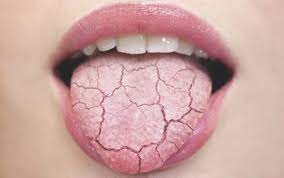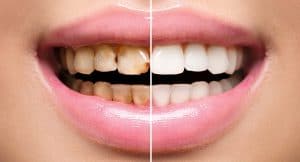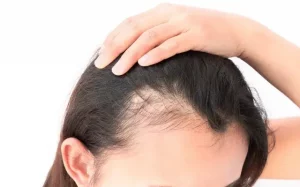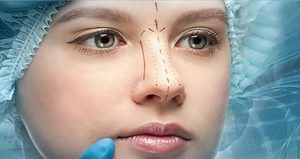
Dry mouth, also known as xerostomia, is a frequent symptom caused by a reduction in saliva production or a change in saliva quality. Although the actual number of persons who suffer from xerostomia is unclear, it appears to be a frequent problem. Depending on the sorts of patient groups analyzed, estimates range from 1 to 65 percent.
Saliva is a vital bodily fluid that aids in the protection and maintenance of the oral cavity. Moreover, the maintenance of overall health and comfort of the mouth. The three pairs of main salivary glands, as well as hundreds of tiny salivary glands, create it. Its worth is rarely recognized until there is a scarcity of it. Saliva is required to wet the mouth, lubricate food for easier swallowing, protect oral hard and soft tissues. Furthermore, it helps to adjust oral bacteria populations, give preliminary digesting enzymes, and promote soft tissue healing and oral cleanliness. Xerostomia can result in a variety of clinical problems that impair one’s oral and systemic health. Moreover, it decreases one’s comfort and quality of life. As a result, spotting the first indications of dry mouth is essential.
Symptoms of Xerostomia
Dentists and dental hygienists have been taught to recognize xerostomia. They can frequently detect it long before the patient is aware of it. Insufficient saliva accumulating beneath or around the tongue is one of the most common indicators of xerostomia that your dentist or hygienist may easily detect. Cavities affecting the necks of the teeth at the gumline or biting edges of the teeth are signs of xerostomia. A red parched or fissured tongue is a further sign of xerostomia. There are many symptoms of xerostomia. Trouble swallowing meals (particularly dry food) without liquids, changes in taste, burning feeling are some of them. Discomfort in the mouth and difficulty talking are all common patient complaints or symptoms of xerostomia.
Diognosis of Xerostomia
The diagnosis of xerostomia can be done based on the patient’s medical history. An oral cavity examination, and/or sialometry, a simple office procedure that evaluates the saliva flow rate needed for diagnosing xerostomia. If the patient complains of dry mouth, especially at night, or difficulties swallowing dry foods like crackers, xerostomia should be addressed. A tongue depressor may attach to the buccal mucosa when the mouth is inspected. The “lipstick sign,” which occurs when lipstick sticks to the front teeth in women, can be a good predictor of xerostomia.
The oral mucosa might be dry and sticky, or it can be erythematous because of Candida albicans overgrowth. The hard or soft palate, as well as the dorsal surface of the tongue, are frequently affected by red spots. Pseudomembranous candidiasis can occasionally be seen as detachable white plaques on any mucosal surface. There may be little or no saliva on the mouth floor, and the tongue may seem dry. Due to the fact that a reduction in the number of papillae. Saliva can be stringy, ropy, or frothy in appearance. The cervical margin or the tips of the teeth are all places where dental caries can be detected.
Causes of Xerostomia
Approximately 600 substances and pharmaceuticals, both legal and illegal, have been linked to dry mouth. Antihistamines, blood pressure meds, sedatives, decongestants, analgesics (pain relievers), antidepressants, and illicit narcotics like cocaine are examples of these. Infection of the salivary glands (such as mumps) can induce inflammation and reduce saliva production.
Sjogren’s syndrome is an autoimmune disease that affects salivary glands, and sweat glands. Salivary duct blockages can occur when small stones made of saliva minerals lodge in the ducts, restricting saliva flow. Face nerve difficulties affect the function of the salivary glands. Saliva production may be reduced as a result of injury, sickness, or surgical damage to these nerves. Some cancer therapies, such as chemotherapy or radiation might temporarily impair the salivary glands’ capacity to produce saliva.
Other causes include, for example, breathing mostly via the mouth in the event of a continuously congested nose or clogged sinuses, or hormonal changes caused by pregnancy or menopause. Dehydration can create thick saliva and a dry mouth if you don’t drink enough water. Medical disorders such as blood loss, severe diarrhea, or renal failure are other causes of dehydration.
Treatment of Xerostomia
Your doctor will likely go over all of your medicines with you to determine if any of them are causing your xerostomia. Your doctor may recommend that you adjust your dose or change one or more of your medicines. Artificial saliva replacements are available on prescription from your doctor or dentist. Follow the instructions. Dry mouth products – these items include lubricants and other chemicals that may help in the treatment of dry mouth. Toothpaste, mouthwash, gums, and topical gels are among the products available. Consult your dentist for suggestions.
Dental products offer high levels of fluoride or calcium to help prevent tooth decay. Consult your dentist for suggestions. Antibiotics and antifungal medications are two types of drugs that can be used to treat an infection. Minor surgery is frequently used to relieve obstructions in the salivary glands, such as stones. Other therapies, if necessary – any underlying ailment, such as Sjogren’s syndrome or diabetes, requires medical attention.
There are many treatment options for Xerostomia. You may also be interested in getting a full smile makeover or teeth whitening at Smile Team Turkey with budget-friendly prices.
You can read our previous article from https://smileteamturkey.com/blog/what-is-diastema/





